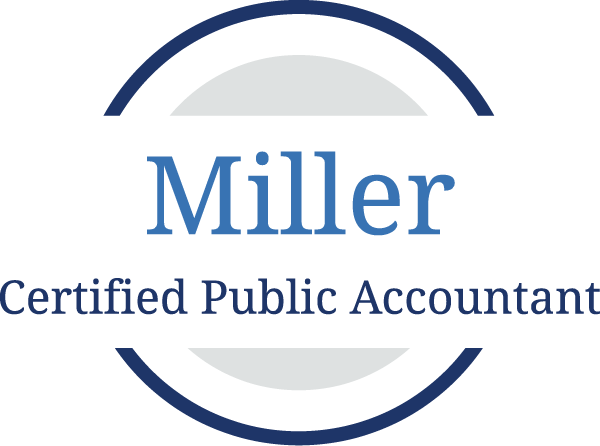Key points:
- The IRS got $80 billion to beef up and target rich tax evaders The big climate and health care bill passed by the House Friday includes billions in new funding for the IRS over the next decade.
- As part of the massive climate and health care bill passed by the House on Friday, the tax collection agency is set to receive $80 billion over the next decade.
- Most of the money is for stepped-up enforcement – to help the IRS collect more of the estimated $600 billion in taxes that go unpaid every year, much of it owed by rich people who under-report their income.
- Both Treasury Secretary Janet Yellen and IRS Commissioner Charles Rettig – who was appointed by former President Trump – insist the additional enforcement efforts will target the wealthy, not middle-class taxpayers.
The tax, health, and climate legislation put forth by Senate Democrats was approved, and it included almost $80 billion in IRS spending. The Inflation Reduction Act, which is a component of President Joe Biden’s program, provides $79.6 billion to the agency over the following ten years. The IRS wants to recover more money from corporate and high-net-worth tax evaders, therefore more than half of the funds will be used for enforcement.
The remaining money will go into operations, taxpayer services, technology, the creation of a direct free e-file system, and other things. According to recent projections from the Congressional Budget Office, such changes will collectively generate $203.7 billion in income between 2022 and 2031.
According to a May 2022 report from the Government Accountability Office, IRS audits have drastically decreased over the past ten years, with the richest individuals experiencing the highest drops. The study highlighted that the audit rate for Americans earning $5 million or more decreased from 16% in 2010 to roughly 2% in 2019. The organization said that it is attempting to raise these figures. Garrett Watson, a senior policy analyst at the Tax Foundation, stated that if the Inflation Reduction Act is adopted by the House and signed into law, it will take time to phase in the additional IRS funding. The $203.7 billion in revenue for 2023 is only estimated by the Congressional Budget Office to be roughly $3 billion.
Where will the funding go?
- Finish up the backlog: According to the memo, the Treasury Secretary wants to “completely settle” the agency’s backlog of millions of unprocessed tax returns. According to the IRS, as of August 5, there were 9.7 million unprocessed individual 2021 tax returns, despite Rettig’s March commitment to clear the backlog by the end of 2022.
- Boost client services: Additionally, the treasury secretary advocated for “substantial changes” in the taxpayer service. According to the Taxpayer Advocate, the IRS only answered 11% of phone calls during fiscal 2021 but recently has used technology to improve.
- Redesign the agency’s technology infrastructure: An “overhaul” of the agency’s IT systems, which are according to the memo “decades out of date,” is another priority. The National Taxpayer Advocate Erin Collins stated in her January report to Congress that “the two IRS systems housing the official records of individual and business taxpayer accounts are the oldest major technological systems in the federal government.”
- To replace retiring staff, hire IRS personnel: To replace the 50,000 IRS employees who are anticipated to retire over the next five years, Yellen also gave priority to hiring new IRS personnel. According to the agency, 78,661 full-time workers were working for the IRS in fiscal 2021, a 12.9% decline from 2012.
Effects on Taxpayers
Audit rates would rise above those predicted by the CBO’s base budget forecasts as a result of the planned increase in expenditure on the IRS’s enforcement efforts. The audit rate for taxpayers with higher incomes decreased between 2010 and 2018, while the audit rate for taxpayers with lower incomes stayed largely steady. The total audit rate drops in the CBO’s baseline predictions, resulting in reduced audit rates for both higher- and lower-income taxpayers. Contrarily, the proposal would raise audit rates to where they were roughly ten years ago; higher-income taxpayers would have the highest increase in rate. Additional IRS resources would be directed toward enforcement actions targeted at high-net-worth taxpayers, sizable firms, and partnerships under the Administration’s policies. The CBO predicts that if the plans were passed, tax compliance would increase and more households would comply with their legal obligations.
Higher audit rates would undoubtedly also cause some audits of taxpayers for whom additional taxes would later be found to not be owed. However, by enabling the IRS to more effectively target non-compliant ones and by lowering the number of audits that resulted in no change in tax assessment, the administration’s proposal for more information reporting and increased spending on IRS technology may lessen the burden on compliant taxpayers.
While supporters of the IRS budget increase celebrate it, critics claim that the increased enforcement may harm more than only rich Americans, going against Biden’s $400,000 vow. Sen. Mike Crapo, R-Idaho, the ranking member of the Senate Finance Committee, said in a statement: “My colleagues claim this massive funding boost will allow the IRS to go after millionaires, billionaires, and so-called rich ‘tax cheats,’ but the reality is that a significant portion of the money raised from their IRS funding bloat would come from taxpayers with income below $400,000.”
The $80 billion in funding, according to IRS Commissioner Charles Rettig, won’t result in more audits of households with annual incomes under $400,000. But there’s no need to worry about the increased audit risk. We ensure that your returns are accurate.
